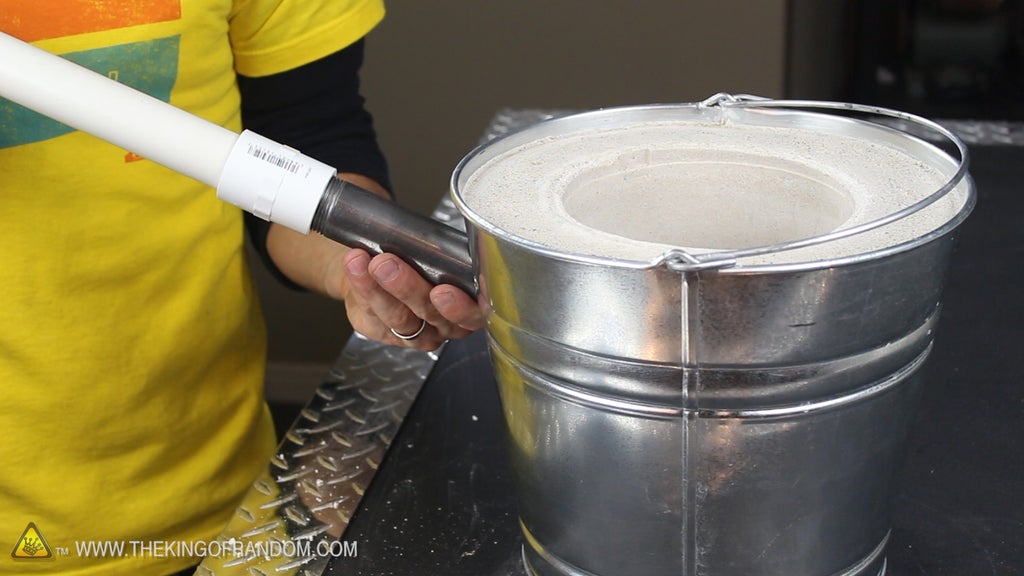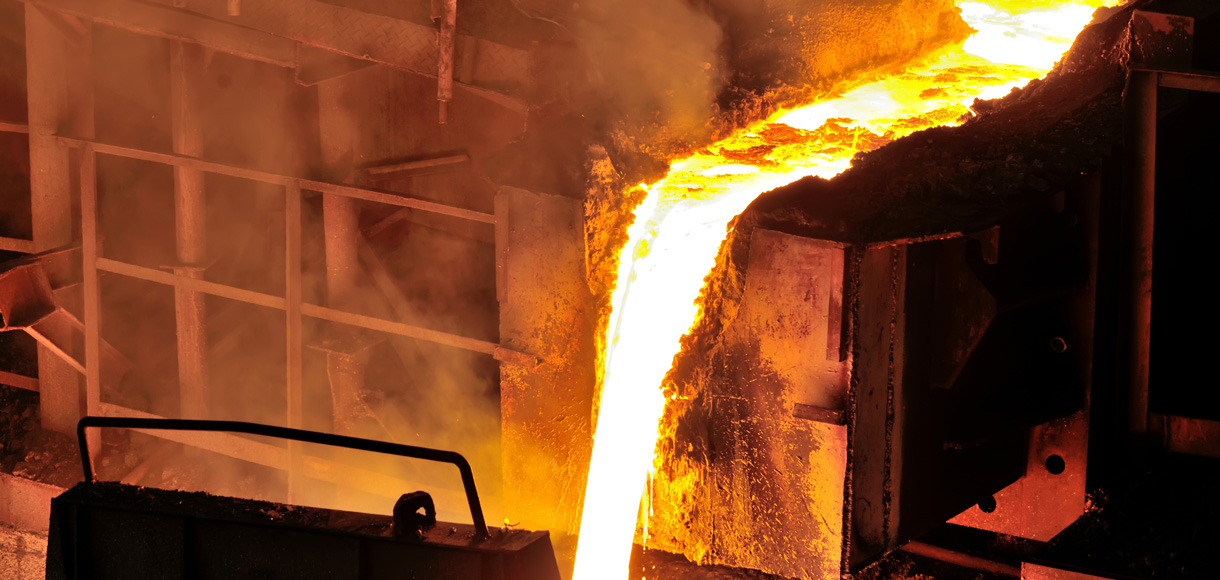Breaking down the modern advances reshaping the Aluminum Foundry industry
Discovering the Function of a Metal Foundry in Modern Production Processes
Metal foundries are crucial in the landscape of contemporary production. They give critical components throughout numerous fields, adapting to the demands of sectors like auto and aerospace. Advanced techniques such as 3D printing and automated casting have actually changed their operations. Additionally, sustainability has become a concern, affecting their methods. As these foundries evolve, the effects for producing effectiveness and technology are considerable, questioning concerning their future trajectory in an ever-changing economic situation.
The Development of Metal Casting Techniques

With the increase of automation, foundries embraced approaches like die casting and lost foam casting, streamlining the production procedure and minimizing waste. Each development in metal casting techniques has dealt with the demands of numerous markets, from automotive to aerospace. As metal casting remains to advancement, the interplay between technique and modern technology continues to be important in conference contemporary production challenges, making certain that foundries adjust and prosper in an ever-changing landscape.
Integration of Advanced Technologies in Foundries
Although standard metal casting methods have offered the market well for centuries, the integration of advanced modern technologies in foundries is revolutionizing the manufacturing landscape. Automation and robotics enhance manufacturing procedures, improving effectiveness and reducing the threat of human mistake. Technologies such as 3D printing permit rapid prototyping and the development of complicated geometries that were when impossible with conventional methods. Additionally, information analytics and the Net of Things (IoT) allow real-time surveillance and anticipating upkeep, inevitably causing lowered downtime and raised efficiency. These innovations likewise assist in customization, enabling manufacturers to react promptly to market demands. As sustainability comes to be a priority, the adoption of ecologically pleasant modern technologies, such as electrical melting heaters and advanced sand recovery systems, even more shows the sector's dedication to development. Jointly, these technologies not only boost functional performance but additionally placement foundries at the leading edge of contemporary manufacturing practices.
The Impact of Product Scientific Research on Foundry Workflow
Product science plays an essential function in enhancing shop operations, influencing both the option of materials and the general casting process. Advances in material scientific research provide a deeper understanding of the buildings of metals and alloys, allowing foundries to select one of the most ideal materials for certain applications. This understanding enhances the efficiency and sturdiness of cast products, which is vital for satisfying sector requirements.
Additionally, technologies in material formulas and additives add to boosted casting techniques, decreasing problems and enhancing manufacturing effectiveness. The development of innovative metal compounds and clever materials permits foundries to generate lighter, more powerful components, which are progressively sought after in numerous sectors such as vehicle and aerospace.
In addition, material science aids in the recycling of steels, making processes a lot more effective and affordable. By leveraging the most up to date searchings for in product scientific research, foundries can adjust to developing market needs, guaranteeing their competitiveness in a quickly altering production landscape.
Sustainability Practices in Modern Metal Foundries
With the growing emphasis on environmental responsibility, modern metal foundries are significantly applying sustainability practices to minimize their environmental footprint (Metal Casting). One vital technique entails the recycling of scrap metal, which not just lowers waste yet likewise preserves energy and resources. Foundries are embracing sophisticated melting technologies that boost power effectiveness, subsequently decreasing greenhouse gas discharges. Additionally, the use of eco-friendly coverings and materials has actually acquired click this link grip, more minimizing harmful exhausts throughout manufacturing
Water conservation strategies, such as closed-loop cooling systems, are being implemented to decrease freshwater usage. Several foundries are additionally spending in sustainable power resources, like solar and wind, to power their operations, thus reducing dependence on fossil fuels. Additionally, staff training programs concentrated on sustainability practices advertise a culture of ecological understanding within the workforce. These efforts jointly contribute to an extra sustainable future for metal foundries while fulfilling the demands of eco-conscious customers.
The Future of Foundries in an Altering Financial Landscape
As the international economic climate evolves, foundries encounter navigate to this website a myriad of difficulties and opportunities that will shape their future (Metal Casting). The boosting demand for light-weight materials and progressed alloys demands advancement in production methods and technological assimilation. Automation and smart manufacturing techniques are becoming vital for boosting performance and reducing operational prices. On top of that, the rise of sustainability issues compels foundries to adopt greener procedures and recycling efforts, straightening with global ecological goals
The financial landscape is likewise moving, with supply chain disruptions and fluctuating basic material costs offering substantial hurdles. Foundries have to adapt by expanding their supply sources and buying products science. Cooperation with industries such as sustainable energy and electric cars can foster development. Inevitably, the future of foundries will depend on their capability to take advantage of technological innovations while remaining receptive to market dynamics and ecological imperatives, guaranteeing their significance in modern-day manufacturing.
Regularly Asked Questions
What Kinds of Metals Are Generally Utilized in Foundries Today?
Commonly made use of metals in foundries today consist of light weight aluminum, iron, copper, zinc, and steel. These materials are preferred for their diverse properties, allowing a wide variety of applications in sectors such as auto, aerospace, and building.
Just how Does a Foundry Ensure Quality Control in Its Products?

What Safety Measures Are Carried Out in a Metal Foundry?
Metal foundries implement safety and security steps including individual safety tools, ventilation systems to reduce get more inhalation of fumes, normal safety training for employees, emergency reaction methods, and extensive equipment maintenance to reduce hazards and assure a risk-free functioning atmosphere.
How much time Does the Metal Casting Process Normally Take?
The metal casting procedure typically takes a number of hours to days, depending upon variables such as the intricacy of the mold, the kind of metal made use of, and cooling down times. Each job's requirements significantly affect the duration.
What Industries Primarily Count On Metal Foundries for Manufacturing?
Automotive, construction, aerospace, and machinery sectors largely count on metal foundries for production. These fields use cast metals for elements, making certain longevity and performance necessary for their particular applications in production and setting up procedures.
Metal foundries are crucial in the landscape of contemporary manufacturing. Metal Foundry. Traditional metal casting methods have actually served the sector well for centuries, the combination of innovative technologies in foundries is changing the production landscape. Developments in product scientific research give a much deeper understanding of the properties of metals and alloys, making it possible for foundries to select the most suitable materials for certain applications. With the growing emphasis on ecological obligation, modern metal foundries are progressively executing sustainability methods to reduce their environmental footprint. Automotive, building, equipment, and aerospace sectors mostly count on metal foundries for production